Devon Trevarrow Flaherty's Blog, page 5
January 22, 2025
Writer in the Wild: Poetry Reading with Friends
 Me at one of these epic holiday crafting parties
Me at one of these epic holiday crafting partiesOver the holidays I went to a number of book-related holiday parties. This is not usual for me. In 2024, I joined six book clubs, only two of which I moved to the “casual” signification, as well as two writing groups. Well, when you do that, apparently there’s a lot more to do in December. Though I am not huge on social gatherings, I was excited about being able to wear more ugly Christmas sweaters and fancy Christmas dresses. And discuss Christmas books. So I showed up to all of the parties available to me. Wait. I might have missed one.
Surprise! Holiday parties thrown by book people for other book people mean that the theme of the party is… books! I can’t even. I was so thrilled to be at no less than three parties where “party” included book trivia, craft tables, and white elephant gift exchanges consisting entirely of books. Craft instead of trying to make polite conversation over a half-glass of punch? Yes! Get competitive about locking down the newest YA book instead of fighting over a humorous phone cover? Yes! Take home goodie bags of book charms and colorful pens instead of leftover cookies? Yes!
Book people: invite me to all your parties, please.
One of these parties was not quite what I just described. Officially, it was the monthly meeting of a literary book club (literary fiction and classics), but it was held at someone’s house instead of the book store, it involved tons of food and beverages, and instead of a book, we were instructed to send a favorite poem to one of the members ahead of time. (This club is full of old traditions.)
When we arrived and had our plate of food, we were instructed to find a seat in the family room in a giant circle of chairs and couches. Someone passed around a stapled booklet of all of our poems. Then we each read aloud our poem in the order it was printed (I happened to be first). After reading, the person would share why they had chosen that poem and the group would discuss it.
It was really nice. It was great to encounter poetry because, well, it doesn’t just come up naturally a whole lot. It was cool to see what people chose and to hear why they chose it. It was fascinating.
Here are the poems we chose:
“Jabberwocky,” Lewis Caroll“In the Well,” Andrew Hudgins“The Guest House,” Rumi“Death Rides a Rubber-Shod Horse,” Jay Sigmund“The Road Not Taken,” Robert Frost“Meditation at Lagunitas,” Robert Hass“Pity the Nation,” Kahlil Gibran and Lawrence Ferlinghetti“The Meaning of Life” and two unnamed poems, Vera Pavlova“Allowables,” Nikki Giovanni“Notice What This Poem Is Not Doing,” William Stafford“Selling Flowers,” Serhiy Zhadan“For You My Love,” Jacques Prevert“Wild Geese,” Mary Oliver“I Don’t Know,” Lisa HanniganMy faves, for what it’s worth, were “Jabberwocky” (obviously, because it was my pick), “In the Well,” “The Guest House,” “The Meaning of Life” etc., and “Allowables.” Maybe also “Wild Geese” or “Death Rides a Rubber-Shod Horse.” I could keep going, I guess, which makes like more than half of them. I really loved “Allowables” and “The Meaning of Life” series.
If you have an interest in poetry, I would suggest looking up Vera Pavlova. Or just throw a party at your house where you all share poetry and talk kindly and thoughtfully about it instead of playing beer pong.
January 19, 2025
Book Review: Scythe
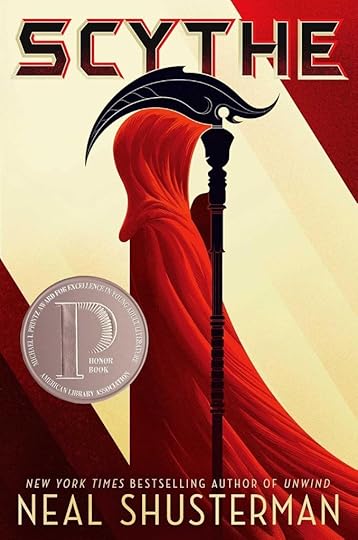
Scythe by Neal Shusterman is book one of the Arc of a Scythe trilogy, one of four (almost five) books in the Scythedom, but because I won’t be reading the second or third for some time, I am going to review this one now.
You can’t have missed seeing this book around, especially if you spend any amount of time in the YA section of bookstores. The cover is simple but memorable, with a neat (though decades overdone) optical trick when you look closer. A slash of white. A red-robed Death with a black scythe. Or so we would see it on first encounter. I expected to like the book. I really did. It reminded me of The Hunger Games though it had its own neat twist on a dys/utopia. And so far, the writing is not quite as good as The Hunger Games. But I will for sure recommend it and finish the trilogy. According to friends, I should go even further than the trilogy.
The tagline for this novel: “Thou shalt kill.” In the future, humans have conquered mortality, which means that their lives are very different in so many ways. One of them: in order to keep the population under control, appointed Scythes roam the Earth killing carefully selected individuals. Citra and Rowan are both chosen to train to become a Scythe, but only one of them can succeed. The other can return to their normal life… or can they? Learning the ways of the Scythe is a profoundly (immortal) life-changing experience. It’s also extremely dangerous.
This chunky but not overwhelming book jumps back and forth between the perspective of Citra and Rowan, with journal entries (mostly from a third character who we are unsure who they are for the first half of the book) in between. Sometimes a third perspective, a more omniscient one, shows us a different band of characters. If that sounds confusing, it’s really not. The book is easy to read, engaging, and makes you think. It might be considered violent, though the approach to this violence is… unique. I thought The Hunger Games would be too much for me and it totally wasn’t. Same here.
I enjoyed the characters. I enjoyed the world-building. I enjoyed the amped-up plotline as it progressed. I enjoyed the insightfulness and consideration. And the twists. There were some twists that I rolled my eyes at—obviously!—but then a few more that surprised me. I always love when a book (justifiably) surprises me.
There’s not even that much for me to say here. I would recommend it. If you read YA dystopian, then you have already read this or certainly should. It’s bound to become a classic of the genre. Even an adult reading YA will enjoy this book, though they’ll have to remember that the main characters are teens and they are bound to do very teen-like things, make teen-ish decisions.
On that note, I will mention that plenty of adult or even new adult readers complain about this book having older themes but then the delivery is young. First of all, kids can handle just about any theme (we authors just write it differently). But what I really want to say is this:
We are guests in this genre (YA). We can respect what is being done in this space and enjoy what we can with understanding. It’s like being a tourist. Responsible tourists don’t trash the place. They notice that there is a different culture at play and they sometimes join in, sometimes step back, but almost never demand that things happen like they do at home. Because this is someone else’s home. In Scythe, we adults are guests and the natives are most likely young teens. Since YA has been trending older and more mature—ever toward new adult—I think it’s wonderful there are books that still make a space for ninth graders-ish. Yes, the romance in underdeveloped. Do the kids care? Not like we do. Etc.
I will agree though–as an adult–that the romance is underdeveloped.

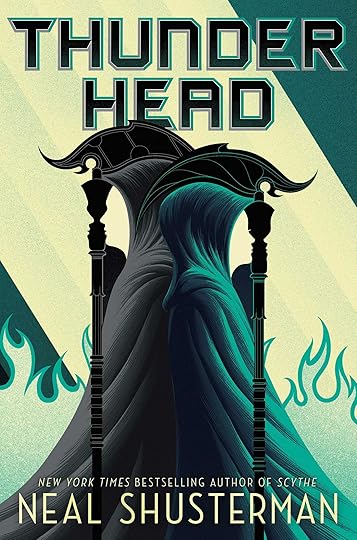
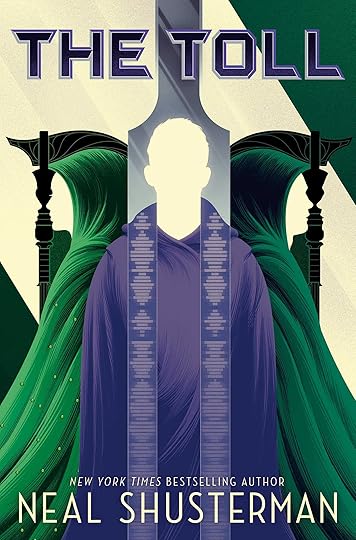

The series continues with Thunderhead and The Toll, though it is possible to just read Scythe and be happy with the ending (which most people really love). There is also a book of short stories, Gleanings, that comes highly recommended if you want to know more about the world and are especially interested in the mind-tickling aspects of the series. And Shusterman has announced a prequel, as well. But with Scythe‘s 4.32 star review on Goodreads and the Printz Award (among others, including an almost unanimous book club “like” for the book club I read this in (need I say that almost never happens?)), you probably won’t stop there.

“In fact, in the grand scheme of things, everyone was equally useless. That’s what he was saying, and it infuriated Citra, because on a certain level, she knew he was right” (p11).
“But remember that good intentions pave many roads. Not all of them lead to hell” (p26).
“…they dismissed it in the self-serving way parents often had of pretending anything they can’t slove is not really a problem” (p38).
“What must life have been like in the Age of Mortallity? Full of passions, both good and bad. Fear giving rise to faith. Despair giving meaning to elation” (p46).
“I often wonder if the bright benefit of belief outweighed the darkness its abuse could bring” (p118).
“Nature deemed that to be born was an automatic sentence to death, and then brought about that death with vicious consistency” (p202).
“’Rightmindedness is overrated,’ Goddard said. ‘I’d rather have a mind that’s clear than one that’s right’” (p218).”
“Guilt is the idiot cousin of remorse” (p235).
“Being made to suffer pain frees us to feel the joy of being human” (p244).
“Without the threat of suffering, we can’t experience true joy. The best we get is pleasantness” (p244).
“The world has a talent for rewarding bad behavior with stardom” (p273).
“I believed, in my arrogance, that I had a keen grasp of the big picture that others lacked. But of course, I was just as limited as anyone else” (p273).
“I think all young women are cursed with a streak of unrelenting foolishness, and all young men are cursed with a streak of absolute stupidity” (p347).
“However, rot grows on even the sturdiest of foundations” (p434).

There are rumors of Steven Spielberg and Amblin Entertainment taking on the movie (or is it series?) adaptation of this book series. But I see no solid evidence of what’s happening, which could mean everything or nothing at all. We’ll wait and see.
January 12, 2025
Book Review: Hell Followed With Us

I have fallen behind on book reviews over the (long) holiday season. I read Andrew Joseph White’s Hell Followed With Us in October. It’s a memorable book though, and I have notes as well as a book club discussion synopsis (provided by the leader—I was unable to go). I remember that this book was way too much body horror for me. And it was visually and spatially confusing. And the representation was often too obvious and veered into token characters. But it was a nominee for a lot of awards in 2022. And it was, as I said, memorable.
Queer teen boy Benji is on the run from the cult that raised him, rejected him, and infected him with a bioweapon. Benji desperately wants to find a place he feels accepted, but he also wants to keep the growing weapon inside him out of the hands of the world-destroying cult. He finds a home for LGBTQ+ kids amidst the rubble of a dystopian world, where the leader is handsome and autistic and may not be exactly who he says he is. Benji is torn between this new boy and his cult husband, between his grip on reality and the raging thing inside him.
The number one thing that I have to say about this book: gory. So gory that it became numbing (and therefore the shock of it wasn’t working for the author anymore). It’s like I shut down. And the trend of biting the inside of the cheek to draw blood in modern literature continues! (That was the least of my worries, here, as far as body horror, but it still makes me queasy and roll my eyes.)
This book is meant for trans kids, mainly. I suppose it is also meant for people around trans kids to read and to understand, but anger and hurt come across a lot more here than any sort of education. There were also elements of overdoing the representation (LGBTQ+, neurodiversity, and racial diversity). Honestly, the book was one giant metaphor for living life as a queer teen, so we didn’t really have to have all the non-plot-developing scenes about actual daily life as a queer teen. (Some, sure. Carefully chosen.) And if White had focused on the struggles and representation of his two main POVs (trans, gay/bisexual, autistic) without throwing the entire toolbox of diversity and lifestyles into everyone, I think it would have been much more effective. I have read criticism elsewhere that complains about some of the characters coming off “token.” Yeah, I see that.
Honestly, it was interesting enough for me to keep reading, even though it was so gory. The opening scene throws the reader right into the action and there is plenty of intrigue. What is Benji’s past? Where is he headed? And what is going on with his body? (Metaphor. See?) I wanted to keep reading. I kept reading. Only when I looked back over my experience did I realize that the pacing was inconsistent, the plot not very clear, the world-building a bit myopic, and the characters a little sparse and flat. But still I had read and, well, I don’t know if they word was “enjoyed” it, but maybe that.
For me, the main issue was actually that I couldn’t see what I was reading. The descriptions are often disjointed or missing. There might be plenty of descriptive words, but somehow they didn’t come together in my imagination to create a sense of space or a meaningful picture. I am not alone in this either, and no one in book club had a real sense of what Seraph even looked like at the end. And up until then, I was often changing my ideas about what the places and creatures looks like, never quite settling. Metaphorically, it worked. Visually (as in the reader’s imagination), not so much.
Which means that in the end I had a hard time loving a “monster.” Because even though the concept and the mystery were engaging, the confusing excess of side characters, the lack of coherent world- and scene-building, the lack of representational focus, and inconsistent pacing (all seconded by the book club discussion synopsis), I could not really go into the book or into Benji’s heart. I couldn’t care as much as I wanted to.
As for the religion thing, I was afraid it was going to be yet another slaughter, but actually I, as a believer, was not offended. The issues with religion were directed mostly at this cult (which works as an effective metaphor for more specific things), religion reads as more ambiguous, and some characters are even left with their belief (even though it might be conflicted based on their experience with the humans attached to their particular belief). Yeah. Again, I hear you.
I didn’t hate reading this book, though I was utterly disturbed by the body horror and excessive gore. I kinda liked reading it. I learned some things. I was on the edge of my seat, sometimes. I would probably recommend it for certain people. But on reflection, it fell flat in some really important ways. Since it’s a debut novel, there is a (strong?) chance White will get these things right-er in future novels.

Props to his covers, for sure.
Andrew Joseph White is a trans autistic writer out of the DC area. He is really moving with the novels, and his first three are all New York Times bestsellers and all YA horror revolving around trans and autism identity. They are Hell Followed with Us, The Spirit Bares Its Teeth, and Compound Fracture. His first adult book, You Weren’t Meant to Be Human, is set for publication this year. He is also working on two more YA novels, You’re No Better and Beast/Warden.
His website can be found HERE.

“That may not be my fault, but it is my responsibility” (p274).
“99 per cent of lying is just figuring out what the other person wants to hear” (p306).

About the time I was reading this book, they announced development of an anime-inspired (animated) feature film for this story. Honestly, I might like that better, but I also might not be able to stomach the gore on screen. Since it’s a shorter format, they’ll have to cut excess and that could be a great thing. Focus. But you never know if these projects will really make it. It does seem to have some names and some enthusiasm and some real ideas behind the venture.
Book Review: The Heaven & Earth Grocery Store
Warning: unpopular literary opinion.

This book was everywhere last year (meaning 2023). The Heaven & Earth Grocery Store by respected, successful author James McBride was called a top novel of the year, including at Goodreads. But how a third of Goodreads readers rate this five stars, I have no earthly (haha) idea. Sure, as one reader put it, “all the ‘classic’ novel ingredients are there …. but nobody put them together very well” (Sara the Librarian). There is great writing (if you mean poetic and descriptive and innovative). There are gripping scenes and a cast of interesting characters. There are a host of social issues that tug at the heart strings. There’s a mystery and an ending. But what sits in between? A mess of a meandering story chock full of irrelevant characters that you cannot keep track of, random rabbit trails, and scenes unrelated to the actual story. I’m not lying.
Should I even give you the blurb? Because you should forget all expectations of a plot here, if you plan to go ahead and read it. Which I’m not a hundred percent telling you not to do.
Big sigh.
There’s a body in a well and it’s old. How did it get there? We’re about to unwind time to the 1920s when about 5,000 characters are warming up for their role in this mystery (or not. Who are we to say at this point?). It’s small town Pennsylvania, and the Jewish people have mostly come down off Chicken Hill even though they are not white and Christian. The Black people are still on the Hill. And any other sort of immigrant that might come into town? Also not white and Christian (enough). There’s a lot of politics, a lot of disenfranchisement, a lot of prejudice, and one character that gives a crap, Chona. Chona (Jewish) owns the Heaven and Earth Grocery Store in the heart of Black Chicken Hill and she cares. She cares about the people around her, and she cares about the deaf and mute boy who is wanted by the state so that they can put him in an asylum. So she helps to hide him. But that’s not going to go over so well with the powerful elite down in Pottstown.
If you can remember that there is a mystery going on during this book you might have a little more fun. Whose body is it? But most people seem to forget that this was the set-up when they have waded out into the depths of this book. That was definitely me. I had a hard time continuing. I had a hard time finishing it. I actually set it aside for a few months right in the middle because I was so frustrated with it. Why?
I’m tired of the gatekeepers (?) being all like “the writing is so good, this author can really write” but there’s no plot and thin characters and confusion on every page. No plot and thin characters and confusion on every page is not great or even good writing! Even if it is poetic! Even if it is innovative! Even if the phrases and metaphors and descriptions are pure gold! Great writing clarifies things for the reader and tells a story! Great writing comes from killing all the darlings that don’t belong in this particular binding.
Heaven & Earth’s characters are a heap of indistinguishable peeps, many of them whom we are uninvested in. There should have been way less of them, some playing multiple roles, and we should have understood by context who was going to be important and enough about them so that when they walked back in later, we’d know who they were and what they were doing there. That’s not asking too much.
Heaven and Earth’s plot is laid out as a mystery that is dropped for almost the entire book and “justified” by weaving it all together at the end. Supposedly. This didn’t work. It lost us for almost the whole reading and then the ending was very slap-dash, leading me to realize the beginning (that I had read months before at this point) was very, very misleading.
Also, it’s supposed to be uplifting? That’s what many reviews and blurbs claim. They wish! Heaven & Earth was horrifying and depressing and included no less than two incidences of rape, both involving a child in one way or another. Were there positive characters in the book? Doing some good things? Yes. But most of them I couldn’t remember, and the goodness was outweighed (like an elephant to a peach outweighed) by the awfulness of what happens to all of these people and also by the sheer horror of some of the more disturbing scenes (and characters).
Not that I was all-in in these scenes, anyhow. McBride’s writing, at least here, is quite confusing. I read literary fiction. I read poetry. I understand history. I read like a hundred books a year. But I was often confused by the jumping in time, jumping in perspective, jumping to characters that may or may not be a part of the actual story, incidences that may or may not be adding to the story… I couldn’t settle in these otherwise historical scenes. McBride jumped around so much, I couldn’t focus long enough to understand, let alone enjoy the read.
And just to show you that I am not the only one who feels exactly this way about this critically acclaimed novel, I have some quotes from an article on A Blog of Books and Musicals. “Half the people I actually did remember ended up never showing up again in any significant capacity, and others that I dismissed as one-scene weirdos actually ended up being frustratingly important at the end of it all” (“The Heaven and Earth Grocery Store (Mini Book Review),” Audra). “When McBride actually bothers to focus, his writing is insightful and purposeful. The problem is that he so rarely focuses. There’s so much going on and so little of it does anything. / The most frustrating part of The Heaven and Earth Grocery Store is that there are a couple of moments of brilliance…” (ibid., which means the quote is from the same person as the one before, if you don’t remember that from college.). “…the line in the blurb about life and community sustaining us through the dark times implied to me that the overall impression would be one of hope, not despair. I did not close the book thinking about life and community. I was thinking, ‘I can’t believe I had to read two graphic, explicit descriptions of sexual assault (one against a child) that result in a death’” (ibid.).
So there you have it. A grumpy review for a book I fully expected to love that let me down page after page, that with a whole lot of editing and humility could have been wrestled into a beautiful, meaningful thing. You might call it one of the top books of 2023. I’m just going to move on with my life, pick up the next book and keep reading.

James McBride is the son of a Black reverend (who died in his 40s of cancer), and a Polish Jewish woman who converted to Christianity. He grew up in Brooklyn’s housing projects. He is probably best known for his 1990s-published memoir The Color of Water (a brick of a book and a modern classic). His 2013 book The Good Lord Bird won the National Book Award. Deacon King Kong was easily one of the top books of 2020. And he has a number of other books, praise from President Barak Obama and Oprah Winfrey, and a National Humanities Medal. He has also been a member of the Rock Bottom Remainders. (Jealous.)
Despite my harping on, The Heaven & Earth Grocery Store was (and still is, I suppose) everywhere. It was both Amazon’s and Barnes and Noble’s Book of the Year and won the Kirkus Prize.
I still want to read The Color of Water (memoir) and Deacon King Kong, maybe The Good Lord Bird.
His website: HERE.
His books:
Miracle at St. AnnaThe Good Lord BirdSong Yet SungThe Color of WaterDeacon King KongKill ‘Em and LeaveFive Carat SoulThe Heaven & Earth Grocery Store
“’That woman,’ his cousin Isaac grumbled, ‘is a real Bulgarian. Whenever they fee like working, they sit and wait till the feeling passes. They can’t pour a glass of water without making a party of it’” (p19-20
“I don’t ask her no questions. I like breathing” (p94).
“He was a true Jew, a man of ideas who understood the meaning of celebration and music and that the blend of those things meant life itself” (p220).
“…a device that fed them their oppression disguised as free thought” (p226).
“You will not find one parent in ten thousand who would raise their child to be a murderer acting like they got God’s understanding” (p244-245).
“But pretending to know everything and acting like you’re better than you know you are puts a terrible strain on a body. It makes you a stumbling stone to your own justice” (p245).
“’Rumors don’t prove much.’ / ‘They prove people can talk is all…’” (p260).
“To her, the world was not a china closet where you admire this and don’t touch that. Rather, she saw it as a place where every act of living was a chance for tikkun olam, to improve the world” (p275).
“And the absence of her meant a thousand tomorrows empty of whatever promise they had once held” (p276).
“’A lawyer will get it done. This is a land of laws.’ / ’White folks’ laws,’ Nate said softly, ‘The minute you leave the room, the next white fell comes along and the law is how he says it is’” (p281).
“Now there’s man’s understanding and there’s women’s understanding. There is white folks’ understanding and Negroes’ understanding. And then there is just plain wisdom” (p297).
“Everything got everything to do with everything” (p307).

There was some buzz in May of 2024 about Spielberg producing an A24 adaptation of Heaven & Earth, but it’s too early with too little info to say whether it’s likely to happen or not.
January 9, 2025
Quotable: Mr. Dickens and His Carol

“Even a grown man can be an orphan.” –Mr. Dickens and His Carol, Samantha Silva
Holiday Book Review: Mr. Dickens and His Carol

I had some fun while reading this book. I like Victorian literature. I like Charles Dickens (‘ books. I’ve never met the man). And I love A Christmas Carol. So it was right up my alley, especially for the holidays. And when I saw Samantha Silva’s pedigree? I was intrigued, excited even. But it was not the well-written book I wanted it to be. It had potential. And in the end it didn’t even need to live up to that potential because it was a breezy, thematic read that I’m sure plenty of people will enjoy even if it has its, well, challenges.
Note: this is a novel. Fiction. It takes great liberties with Dickens’ actual life and makes a lot of things up.
Charles Dickens is surrounded by financial piranhas, which is a real problem this holiday season because his latest book has flopped and his publishers are insisting he write a Christmas book in just a few short weeks in order to stay financially afloat in his rather cushy (now that he’s earned it) life. His wife won’t see reason and insists on throwing the annual gala, his children are young and he doesn’t want to disappoint them, all the local vendors assume he’ll be making the usual orders, his family (no matter how distant) suck him dry every chance they get, and even the poor of London are counting on his sizable donations and handouts. Which leaves Charles feeling more like a Scrooge than a nephew Fred. Although neither of those two characters exists yet, bound up in Dickens’ grumpy, isolated, lonely head where only a beautiful, young, new muse can reach them.
Much has been discovered and speculated about Dickens’ real-life relationships with Eleanor Picken (in the book in name but not as much in story), Nelly Ternan (his mistress), and Mary Scott Hogarth, among others. And we also know that he was married (to Catherine Hogarth) and had ten children. That doesn’t make it any less disappointing when his affair(s) make it into the fictional movies and books about his life. Mr. Dickens and His Carol does something similar to 2017’s The Man Who Invented Christmas (released and published the same year), and that is to soften the relationship to a flirtation or an emotional affair and give it the urgency of her being his muse. Ehn. Still not romantically satisfying. Still disappointing.
Especially when the Charles seen in Mr. Dickens is such a normally stand-up guy, goofy, family-oriented, generous, and even playful. I found myself really liking this Charles character, only to be nervous every time Eleanor showed up, knowing she had the potential to ruin everything, including my reading experience. And in the end, their relationship was weird. And basically unnecessary from the romantic angle. And why did the wife have to disappear? And not really care about it? And him being all like, “I don’t know what’s happening with my marriage! I’m so confused!” Bah humbug.
Then there was the twist. As with most stories, the twist comes near the end. While Silva may be good at writing clear, even beautiful words (and is excellent at whisking us away to Victorian London), she did not set us up for this twist. How I wish she had! It would have made for a much better story if we had tonal hints at what was coming. I’ll have to leave off there.
Also, one theme of this book is generosity, a mirror of what Ebeneezer Scrooge would learn in A Christmas Carol. But Charles was a pale image of the rock-hard, jagged edges of Scrooge. There is a difference between having Christmas spirit and counting one’s blessings and being generous, and being financially oblivious/suicidal! Dickens set up a story situation where Scrooge could well afford to be more generous. Charles, in this story, needed (along with the surrounding people) to learn to be frugal and to count his blessings instead of spending money frantically because it was the holidays! So, when this theme persisted to the end, I was not willing to swallow it. There is a season for everything. Including showing your wife and children that they can be joyful—at Christmas or otherwise—without trappings. And generosity comes in ways besides penny farthings.
Bottom line: while I found so many things about the book fun and immersive, the plot (and even the characters, in the long run) were uncompelling. Good idea and excellent setting, but strung together too fitfully, I think.

Samantha Silva is a filmmaker and film and theater writer. Her short stories and articles have appeared in some very prestigious places. And her debut novel, Mr. Dickens and His Carol, was a best-seller. Her second novel, Love and Fury, focuses on writer Mary Wollstonecraft, the mother of feminism. Her website can be found HERE.

“Because there are times in a man’s life when no knock on any door will divert him from the thing at hand, in particular when that thing is a goose-feather pen flying across the page, spitting ink” (p4).
“Dickens recalled those days at Furnival’s with fondness, too, how they’d live well with less, pretending it was more” (p22).
“If there were those who believed no one should be a writer who could be anything better, John Forster believed no one who could write should be anything but” (p25).
“We must think not of those who have more than we do, but of those who have less!” (p33).
“Fury falls away in dribs and dabs” (p50).
“He knew that every person was a fiery furnace of passions and attachments, unknown to every other. He had stepped too close and been burned” (p118).
“What a simple request, to shut one’s eyes. Yet it had been so long since he’d trusted anyone through and through, at least without satisfying his own curiosity first, gaining assurances, wanting to suggest terms, if not dictate demands” (p129).
“The distance between him and Catherine, as in all marriages, was sometimes an inch, but other times the great expanse between hill and valley, ocean and desert” (p134).
“But I am your father, Charley. Perhaps not a father to be proud of, but not one to be ashamed of, either” (p168).
“Even a grown man can be an orphan” (p182).
“…the truth at the bottom of every illusion, every fiction, every lie: our own great desire to believe” (p185).
“Never mind necessity, melancholy is the mother of invention” (p192).
“But he knew, too, for the first time, what had always been true—that he wanted them to love him” (p248).
“’Oh, son. I only wish I’d been a better father. And a better man.’ / ‘As does any father. And every man.’ He hesitated. ‘As do I’” (p261).
“But I’ve learned, in these days of your absence…that whatever I suffered was a poverty of my own vision” (p269).

I don’t imagine they’ll be making this book into a movie anytime soon because, as I said earlier, a similar movie came out the year this was published, The Man Who Invented Christmas. I liked it. It didn’t do amazingly well at the box office.
January 7, 2025
What to Read in January 2025

I really don’t know what to tell you to read for the beginning of 2025 from the books I’ve already read. I have yet to read a real winner from my list of best New Years books, and I have already told you my favorite reads from 2024. Perhaps I should reiterate them. Best reads of my 2024 (which does not mean they were published in 2024):
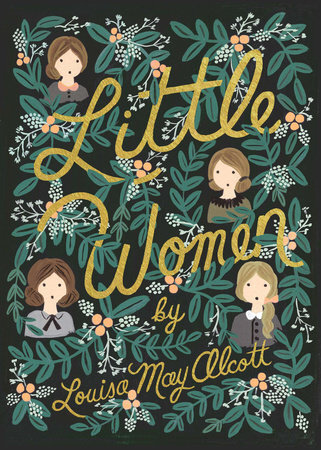


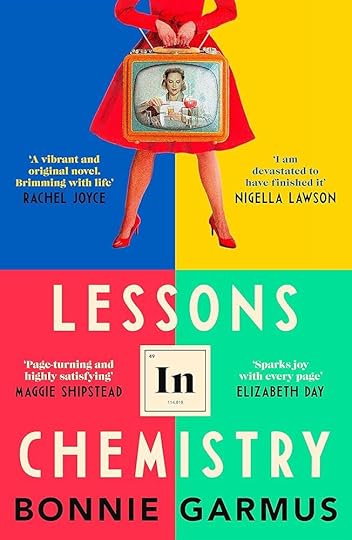
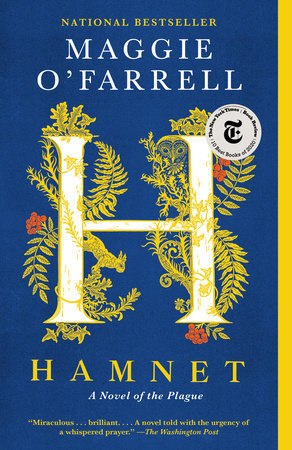
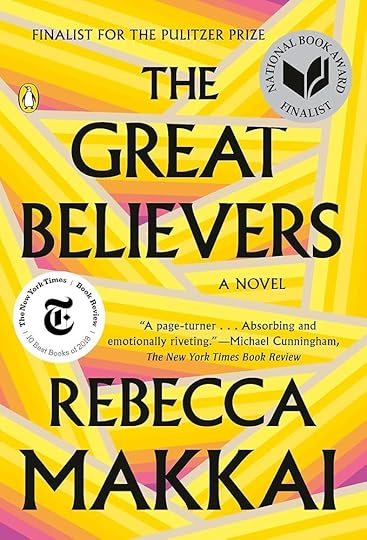


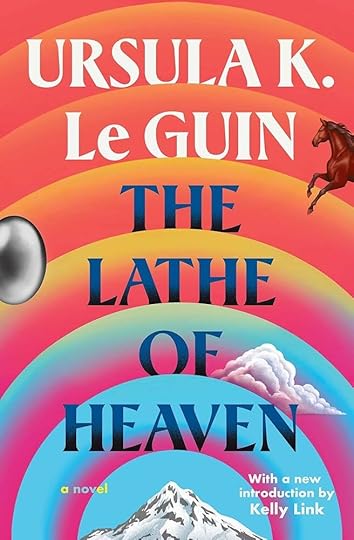





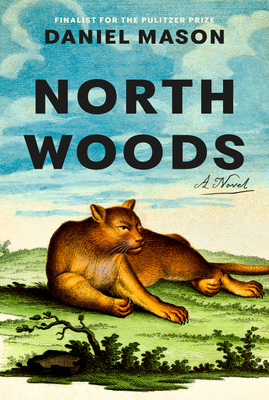

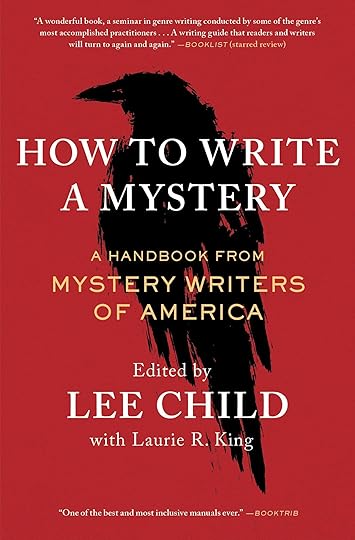



 Little Women
, Louisa May AlcottThe Smitten Kitchen Cookbook, Deb Perelman
Prophet Song
, Paul Lynch (2023)
Lessons in Chemistry
, Bonnie Garmus (2023)
Hamnet
, Maggie O’Farrell
The Great Believers
, Rebecca Makkai
Firekeeper’s Daughter
, Angeline Boulley
Stay with Me
, Ayobami Adebayo
The Lathe of Heaven
, Ursula K. LeGuin
Universal Love
, Alexander WeinsteinMidnight’s Children, Salman Rushdie
Cat’s Cradle
, Kurt Vonnegut
Martyr!
, Kaveh Akbar (2024!)
The Chocolate War
, Robert Cormier
North Woods
, Daniel Mason (2024!)
Harold and the Purple Crayon
, Crockett JohnsonHow to Write a Mystery, Mystery Writers of America
Trail of Lightning
, Rebecca Roanhorse
Little Women
, Louisa May AlcottThe Smitten Kitchen Cookbook, Deb Perelman
Prophet Song
, Paul Lynch (2023)
Lessons in Chemistry
, Bonnie Garmus (2023)
Hamnet
, Maggie O’Farrell
The Great Believers
, Rebecca Makkai
Firekeeper’s Daughter
, Angeline Boulley
Stay with Me
, Ayobami Adebayo
The Lathe of Heaven
, Ursula K. LeGuin
Universal Love
, Alexander WeinsteinMidnight’s Children, Salman Rushdie
Cat’s Cradle
, Kurt Vonnegut
Martyr!
, Kaveh Akbar (2024!)
The Chocolate War
, Robert Cormier
North Woods
, Daniel Mason (2024!)
Harold and the Purple Crayon
, Crockett JohnsonHow to Write a Mystery, Mystery Writers of America
Trail of Lightning
, Rebecca RoanhorseAnd I suppose we could add to that Scythe (Arc of a Scythe #1) by Neil Schusterman, which I finished right before the end of the year. And definitely The Best Christmas Pageant Ever by Barbara Robinson. Not to mention The Polar Express (Chris Van Allsburg) and Don’t Let the Pigeon Drive the Sleigh! (Mo Willems).

We have burst into the new year with all sorts of lists of books that are meant to be published in 2025 (which barely stretches halfway through for obvious reasons). I have my eye on Rebecca Yarros’ Onyx Storm (Empyrean #3) and Emily Henry’s Great Big Beautiful Life, which is not especially sophisticated of me. As for new stuff, I wait to see who goes home with awards or what books keep me returning to hover over them at bookstores. Other than that, I’ll be playing catchup from last year’s top books when I’m not reading for work or for book clubs.
January’s most obvious, expected publications include:

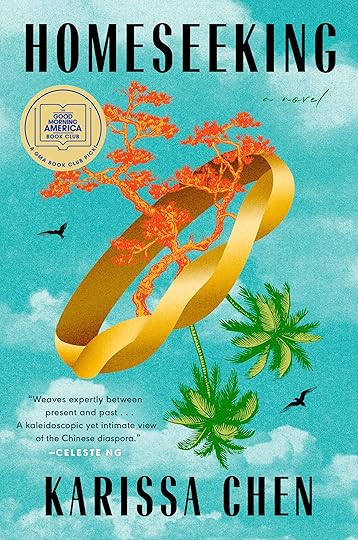
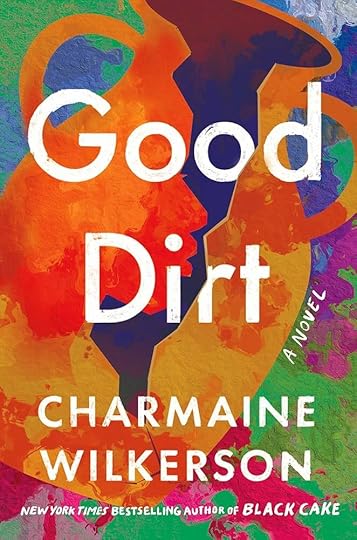




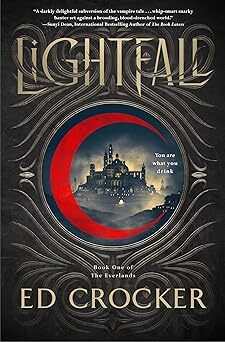
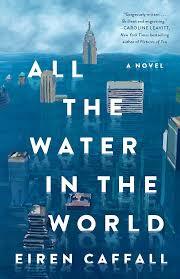
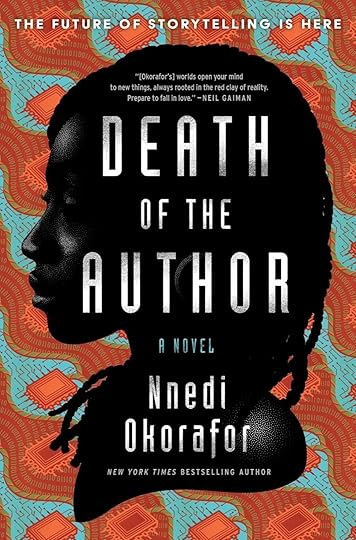


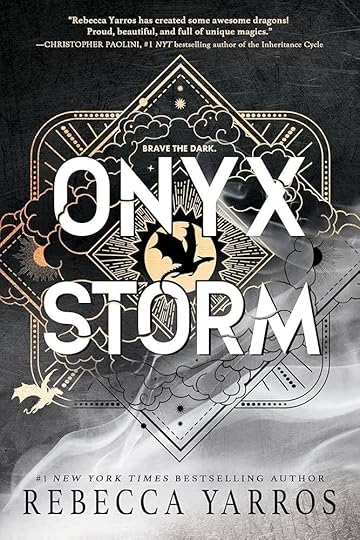




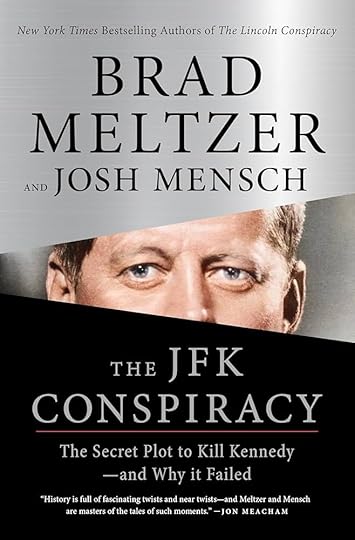
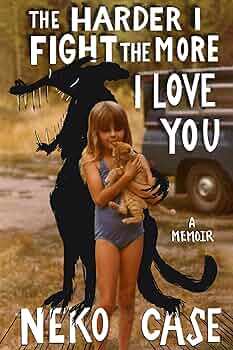

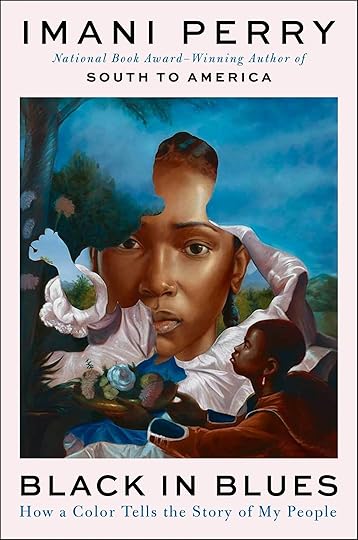

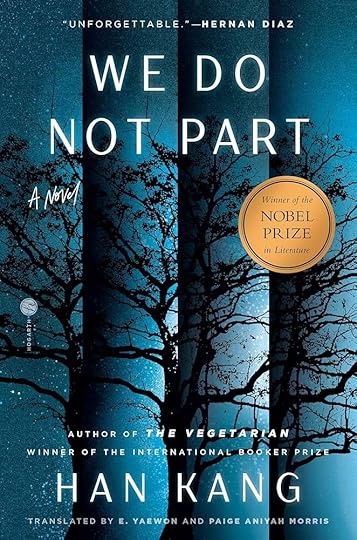
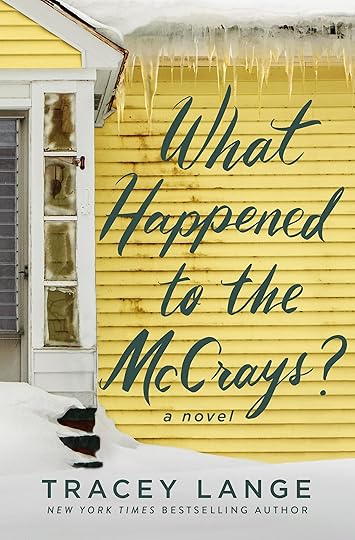



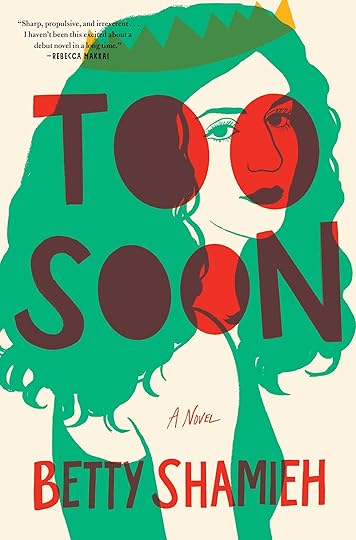
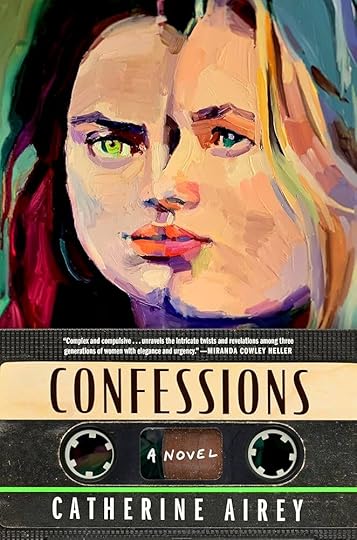


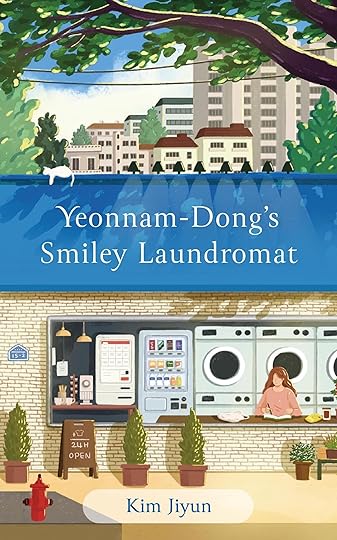


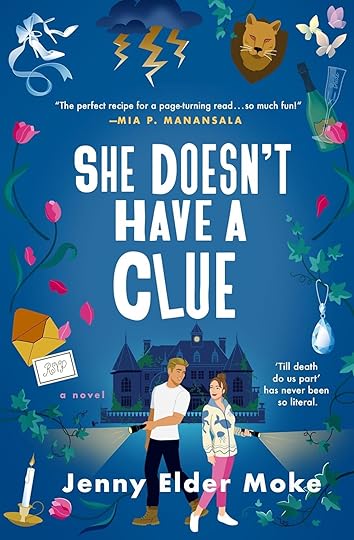
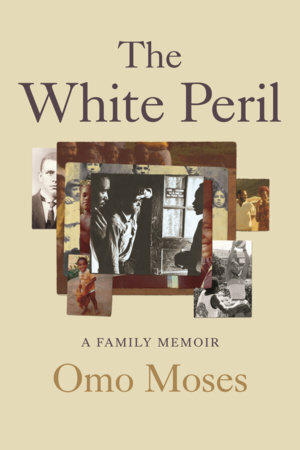
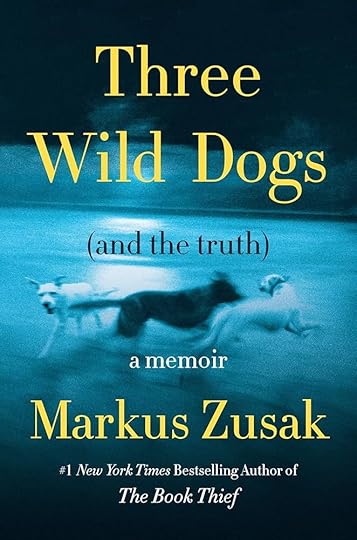 The Stolen Queen, Fiona Davis (historical fiction mystery)Homeseeking, Karissa Chen (historical fiction)Good Dirt, Charmaine Wilkerson (historical fiction)Beautiful Ugly, Alice Feeney (domestic thriller)The Crash, Frieda McFadden (psychological thriller)Immortal, Sue Lynn Tan (romantasy)Water Moon, Samantha Sotto Yambao (cozy romantasy)Lightfall, Ed Crocker (Everlands trilogy #1, high fantasy)All the Water in the World, Eiren Caffall (dystopian sci fi thriller)Death of the Author, Nnedi Okorafor (sci fi saga)Hammajang Luck, Makana Yamamoto (cyberpunk mystery)Witchcraft for Wayward Girls, Grady Hendrix (psychological horror)Out of the Woods, Hannah Bonam-Young (tomance)The Starlight Heir, Amalie Howard (romantasy)Onyx Storm, Rebecca Yarros (Empyrean #3, romantasy)I Am Not Jessica Chen, Ann Liang (YA fantasy dark academia)You’ll Never Believe Me, Kari Ferrell (memoir)The JFK Conspiracy, Meltzer and Mensch (history)The Harder I Fight the More I Love You, Neko Chase (autobiography)Realm of Ice and Sky, Buddy Levy (history/biography)Black in Blues, Imani Perry (history)Penitence, Kristin Koval (coming-of-age crime fiction)We Do Not Part, Han Kang (literary fiction)What Happened to the McCrays?, Tracey Lange (domestic fiction)A Sea of Unspoken Things, Adrienne Young (magic realism mystery)Beg, Borrow, or Steal, Sarah Adams (romance humor)The Life Cycle of the Common Octopus, Emma Knight (coming-of-age domestic fiction)Too Soon, Betty Shamieh (literary fiction saga)Confessions, Catherine Airey (literary fiction saga)The Life of Herod the Great, Zora Neale Hurston (historical fiction)The In-Between Bookstore, Edward Underhill (transgender time travel)Yeonnam Dong’s Smiley Laundromat, Kim Jiyun (Korean domestic fiction)Darkmotherland, Sumrat Upadhyay (dystopian political fiction)Rosarita, Anita Desai (literary fiction)She Doesn’t Have a Clue, Jenny Elder Moke (mystery romance)The White Peril, Moses Omo (civil rights memoir)Three Wild Dogs, Marcus Zusak (memoir)
The Stolen Queen, Fiona Davis (historical fiction mystery)Homeseeking, Karissa Chen (historical fiction)Good Dirt, Charmaine Wilkerson (historical fiction)Beautiful Ugly, Alice Feeney (domestic thriller)The Crash, Frieda McFadden (psychological thriller)Immortal, Sue Lynn Tan (romantasy)Water Moon, Samantha Sotto Yambao (cozy romantasy)Lightfall, Ed Crocker (Everlands trilogy #1, high fantasy)All the Water in the World, Eiren Caffall (dystopian sci fi thriller)Death of the Author, Nnedi Okorafor (sci fi saga)Hammajang Luck, Makana Yamamoto (cyberpunk mystery)Witchcraft for Wayward Girls, Grady Hendrix (psychological horror)Out of the Woods, Hannah Bonam-Young (tomance)The Starlight Heir, Amalie Howard (romantasy)Onyx Storm, Rebecca Yarros (Empyrean #3, romantasy)I Am Not Jessica Chen, Ann Liang (YA fantasy dark academia)You’ll Never Believe Me, Kari Ferrell (memoir)The JFK Conspiracy, Meltzer and Mensch (history)The Harder I Fight the More I Love You, Neko Chase (autobiography)Realm of Ice and Sky, Buddy Levy (history/biography)Black in Blues, Imani Perry (history)Penitence, Kristin Koval (coming-of-age crime fiction)We Do Not Part, Han Kang (literary fiction)What Happened to the McCrays?, Tracey Lange (domestic fiction)A Sea of Unspoken Things, Adrienne Young (magic realism mystery)Beg, Borrow, or Steal, Sarah Adams (romance humor)The Life Cycle of the Common Octopus, Emma Knight (coming-of-age domestic fiction)Too Soon, Betty Shamieh (literary fiction saga)Confessions, Catherine Airey (literary fiction saga)The Life of Herod the Great, Zora Neale Hurston (historical fiction)The In-Between Bookstore, Edward Underhill (transgender time travel)Yeonnam Dong’s Smiley Laundromat, Kim Jiyun (Korean domestic fiction)Darkmotherland, Sumrat Upadhyay (dystopian political fiction)Rosarita, Anita Desai (literary fiction)She Doesn’t Have a Clue, Jenny Elder Moke (mystery romance)The White Peril, Moses Omo (civil rights memoir)Three Wild Dogs, Marcus Zusak (memoir)

Sure it’s a week into January, but my December best reads were, as already shared above:


 Don’t Let the Pigeon Drive the Sleigh!,
Mo Willems **
The Polar Express
, Chris Van Allsburg **
The Best Christmas Pageant Ever
, Barbara Robinson ***
Don’t Let the Pigeon Drive the Sleigh!,
Mo Willems **
The Polar Express
, Chris Van Allsburg **
The Best Christmas Pageant Ever
, Barbara Robinson ***I adored the children’s chapter book by Miss Robinson, hilarious and poignant. And I actually made my teen children sit down on the floor of a bedroom so I could read the updated Pigeon series to them. It ended up being more of the same in a good way, filled with bright illustrations, interaction and—it turned out—surprise. As for The Polar Express, well that’s a classic. And agreed.
And by this slim list we can ascertain that my December reads were not, overall, very good. I was disappointed by The Heaven and Earth Grocery Store, which I will review for you shortly. And I was pleased but not wowed by Mr. Dickens and His Carol (Samantha Silva), Whiteout (six different authors), and “Afterward” (Edith Wharton). I won’t even mention the two real stinkers that I read. Not here, anyway.

As for this month’s book clubs, we really have them lined up.

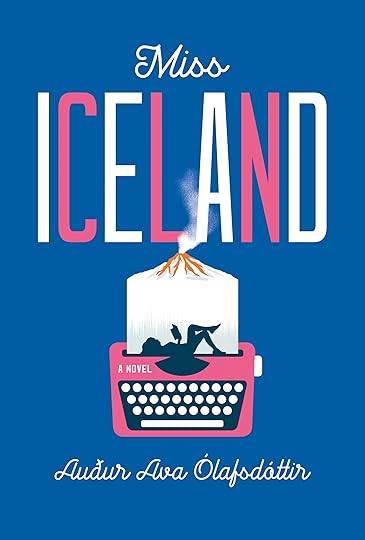
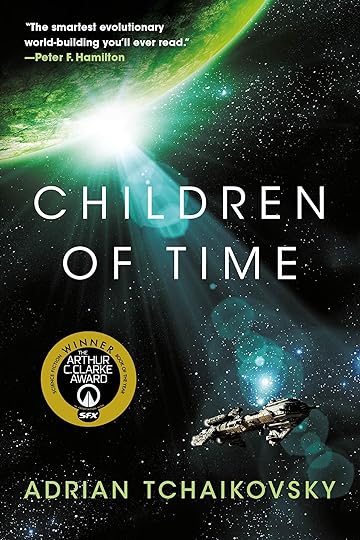
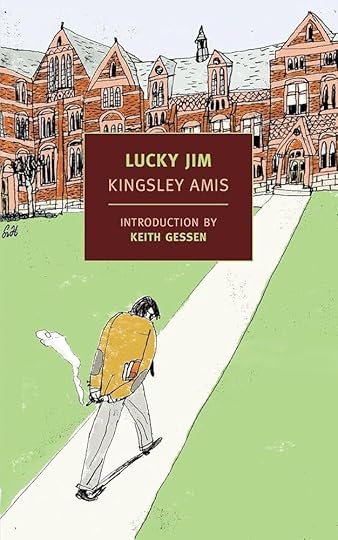

 Scythe (Arc of a Scythe #1), Neil Schusterman (finished already and really enjoyed it)Miss Iceland, Ardur Ava Olafdottir (am currently enjoying)Children of Time (Children of Time #1), Adrian Tchaikovsky (having trouble connecting with therefore daunted by sheer heft)Lucky Jim, Kingsley Amis (slogging through even though I can appreciate it)Spare, Prince Harry (the only one untouched so far)
North Woods
, Daniel Mason (which I read last summer and loved)
Scythe (Arc of a Scythe #1), Neil Schusterman (finished already and really enjoyed it)Miss Iceland, Ardur Ava Olafdottir (am currently enjoying)Children of Time (Children of Time #1), Adrian Tchaikovsky (having trouble connecting with therefore daunted by sheer heft)Lucky Jim, Kingsley Amis (slogging through even though I can appreciate it)Spare, Prince Harry (the only one untouched so far)
North Woods
, Daniel Mason (which I read last summer and loved)My other possible reads this month (which I put into some ginormous spreadsheet that is flexible based on what I didn’t get to the month before; and I know I won’t get to them all this month), are:
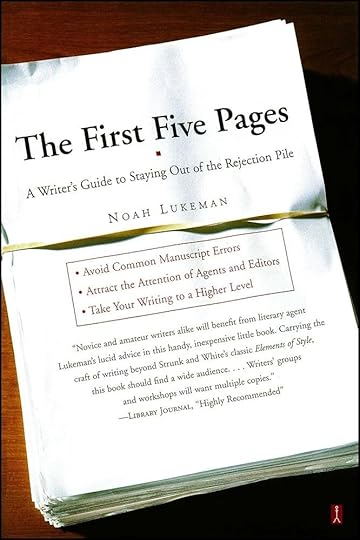






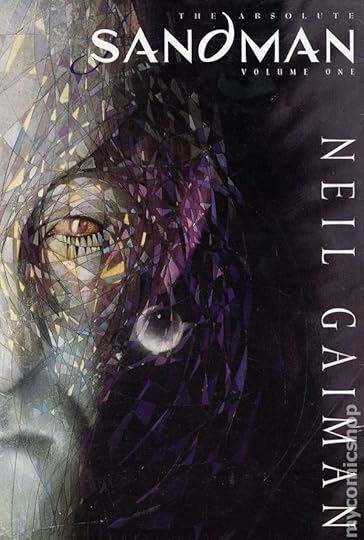

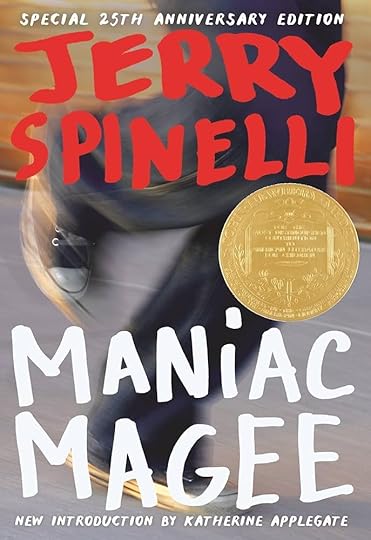
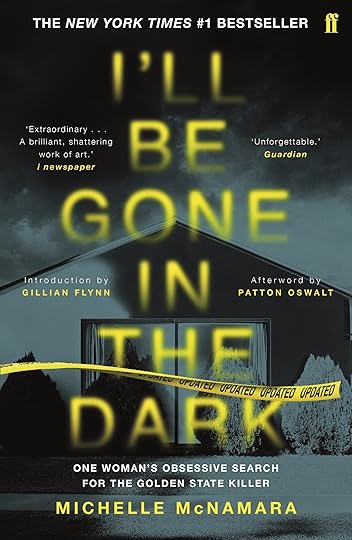
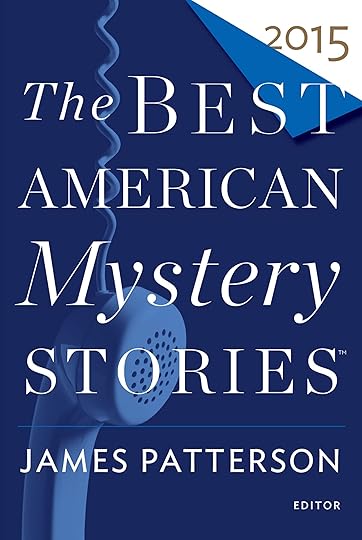

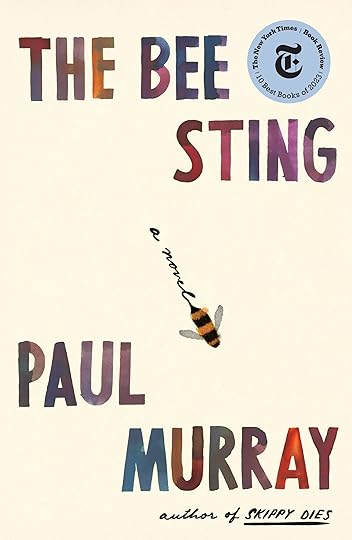
 The First Five Pages, Noah Lukeman (writing)Abba’s Child, Brennan Manning (Christianity)Not Your Grandma’s Menopause, Inez Haynes (health, obviously)Overwhelmed, Brigid Schulte (New Years reading)Midnight’s Children, Salman Rushdie (finish once and for all!)James, Percy Everett (best book of 2024, singular “book” intended)Coming Home, Brittney Griner (bought for me off a wish list by my daughter)The Sandman Vol1, Neil Gaiman (finish once and for all!)Maniac Magee, Jerry Spinelli (work-related)Kingdom of Copper (Daevabad #2), Chakraborty (continue a series)I’ll Be Gone in the Dark, Michelle McNamara (work-related)Best American Mystery Stories 2015 (work-related)The Eyes and the Impossible, Dave EggersThe Bee Sting, Paul Murray (bests/award winners of 2023)Intermezzo, Sally Rooney (bests/award winners of 2024)
The First Five Pages, Noah Lukeman (writing)Abba’s Child, Brennan Manning (Christianity)Not Your Grandma’s Menopause, Inez Haynes (health, obviously)Overwhelmed, Brigid Schulte (New Years reading)Midnight’s Children, Salman Rushdie (finish once and for all!)James, Percy Everett (best book of 2024, singular “book” intended)Coming Home, Brittney Griner (bought for me off a wish list by my daughter)The Sandman Vol1, Neil Gaiman (finish once and for all!)Maniac Magee, Jerry Spinelli (work-related)Kingdom of Copper (Daevabad #2), Chakraborty (continue a series)I’ll Be Gone in the Dark, Michelle McNamara (work-related)Best American Mystery Stories 2015 (work-related)The Eyes and the Impossible, Dave EggersThe Bee Sting, Paul Murray (bests/award winners of 2023)Intermezzo, Sally Rooney (bests/award winners of 2024)
Holiday Book Review: The Best Christmas Pageant Ever!
 Image from Amazon.com
Image from Amazon.comThis book is titled The Best Christmas Pageant Ever (by Barbara Robinson), but it is also the best Christmas book ever. I am not trying to be cute (exclusively). I am in love with this short, children’s chapter book. It is hilarious and poignant. It does have some outdated content, but I went into it not expecting much and was blown away by how much I enjoyed it. I am in danger of talking it up too much and having you be disappointed, but I do want you to read this book if it is the kind of thing you would appreciate as much as I did. Do.
The synopsis on Goodreads is too perfect not to quote here: “Ralph, Imogene, Leroy, Claude, Ollie, and Gladys Herdman are an awful bunch. They set fire to Fred Shoemaker’s toolshed, blackmailed Wanda Pierce to get her charm bracelet, and smacked Alice Wendelken across the head. And that’s just the start! When the Herdmans show up at church for the free snacks and suddenly take over the Christmas pageant, the other kids are shocked. It’s obvious that they’re up to no good. But Christmas magic is all around and the Herdmans, who have never heard the Christmas story before, reimagine it in their own way.” Told through the voice of Beth, the daughter of the unexpected interim director of said pageant.
This book was on the Starving Artist’s list of best books for Christmas. When the movie came out this holiday season, I decided to read it. There was something about it that felt familiar… and then I realized there was a chapter of it (probably the best chapter, actually) in The Random House Book of Humor that I had read more than once as a child. Still, I wasn’t sure exactly what to expect. If someone had said “Beverly Cleary in church with a little 70s grit,” this might have done it. It’s a gentler, homier Christmas Story.
Published in 1972, Pageant weighs in at 108 very quickly read pages. It’s meant for elementary school kids, but it also makes great family entertainment (which is how it ended up as a movie, I suppose). It’s well-written and intriguing enough to be read aloud to kids or, in my case, just enjoyed as an adult all by myself. The thing is, I try to read a new religious advent book every year, and while this isn’t that, it is excellent for not only laughing along and hearing a good story but also considering the “meaning of the season.” If you are Christian, mostly, but I suppose even if you’re not. The message is dual: it is a fresh look at the manger scene on one hand, and it is a surgical glimpse into our hearts of dis-inclusion, of othering others on the other. (Oh boy, words.)
This is Barbara Robinson’s most famous book, but she also wrote a number of other children’s chapter books. There are more books in the Herdman series, in fact: The Best School Year Ever and The Best Halloween Ever.
There are some outdated things. There is fat-shaming, the Dad is incapable of making his own frickin’ dinner (or even conceiving of the idea), there is child nicotine use, and “Indian” is used instead of Native American or Indigenous Peoples or whatever. Also, if you don’t have an understanding of this time (I was alive not long after), then you probably can’t appreciate much of the humor. But if you are, it’s hilarious. (Maybe even if you’re not?) And poignant. That’s the main thing I walked away with; the story really touched me and made me see the nativity and church with fresh eyes. As the Herdmans turned the pageant on its head, so our perception (and the characters’ perception) of Christmas is turned on its head. I suggest you just sink into the time period and the little family in the little church in the little town in a time decades ago and hear the story. Laugh along. And take it with you.

“You would have thought the Christmas story came right out of the F.B.I. files, they got so involved in it—wanted a bloody end to Herod, worried about Mary having her baby in a barn, and called the Wise Men a bunch of dirty spies” (p67).
“When [name redacted for spoiler reasons] had asked me what the pageant was about, I told her it was about Jesus, but that was just part of it. It was about a new baby, and his mother and father who were in a lot of trouble—no money, no place to go, no doctor, nobody they knew. And then arriving from the East (like my uncle from New Jersey), some rich friends. / But [name redacted], I guess, didn’t see it that way. Christmas just came over her all at once, like a case of chills and fever. And so she was crying, and walking into furniture” (p105-106).


My husband and I still had AMC memberships and were seeing one to two movies per week at the local theater (which, appropriate for this particular review, doubles as our actual church). The Best Christmas Pageant Ever! (2024) looked cute and I wanted to read the book, so we went to see it. While my husband is not a fan of all family movies, he did like this one. And I did too. Though in hindsight, I did like the book better. Until the end, we were caught up in the story. It was well put together and well-acted. It was immersive. I was not a huge fan of the ending, since the ending really already happened, if you know what I mean. But I have recommended this movie to friends and family and for your next holiday season, when it is streaming, this should be at the top of your family movies to watch and maybe adopt into your holiday movie rotation. Which is what I will do (with my almost-adult children).
December 29, 2024
Holiday Book Review: The Polar Express

I doubt that I have much to add to whatever discussion and reviews there might be of this book, but I do like to review all books I read, especially the classics. And The Polar Express by Chris Van Allsburg is a classic. Though at this point I suppose the 2004 Tom Hanks movie is more well-known, at least for Millennials and younger. But as is often (but not always) the case, the book is better. And I grew up with the book without the movie. I also grew up with a bookish aunt who admired the picture books and art of Van Allsburg so I was read all of his books. The Polar Express was less creepy than the rest (Jumanji, Zathura, especially The Mysteries of Harris Burdick), so it was not my favorite. But it’s a great picture book with excellent illustrations that has stood the test of time.
When I picked it up off the shelf to give it a holiday read this year, I couldn’t remember exactly what was original to the book that was not invented for the movie (though I saw that long enough ago that I didn’t remember every detail about the movie either). It turns out, not a lot. Because the book is short and sweet, even for a picture book. The basic journey is there: a little boy hears a train pull up outside on Christmas Eve and he jumps on board to travel with a bunch of other kids to visit the North Pole for Santa’s giving of the first gift and his takeoff on his sleigh. There is a moral of sorts involving the best gifts being memories and not things, and also about childhood being a time of belief and wonder.
For me, Van Allsburg shines most in his illustrations, though there is also a distinct magic in his stories. I mean, he gives no explanations for his fancies, like how a train would pull up outside a house on a street and why a kid might not want to jump in it without question. None of that matters in the magical spaces of Van Allsburg’s worlds. You just, ahem, go along for the ride. And you marvel at the half-realistic and half-cartoonish illustrations in their muted (sometimes sepia), detailed, almost sgraffitoed graphic delicacy.
Honestly, you don’t need to look any further if you want a picture book to read to your kids or gift to your grandkids for Christmas. There are a number of these holiday classics, and this one is a winner for the playful story, the sweet message, and the epic signature illustrations.

The book is better than the 2004 movie. The movie has become a classic for some, but others really don’t like the weird CG thing that they have going on. (It was very early CG.) Obviously, they had to add a whole lot to the story to make it into a feature-length film. The main character is suddenly pretty much the conductor (Tom Hanks). But they did manage to capture that Van Allsburg magic quality with the dark night, the bright train, and the circus-like, Seuss-like, gravity-defying dancing and singing. Love it or leave it, I guess. But it’s not a bad idea to show it to a small child to see if they end up loving it.
(For what it’s worth, I like the adaptations of Jumaji (both the old and new) and Zathura much better, but they were what my kids called “real skin, so maybe that helped.)
Holiday Book Review: Don’t Let the Pigeon Drive the Sleigh!
 Version 1.0.0
Version 1.0.0One of my son’s favorite books as a child was Don’t Let the Pigeon Drive the Bus!, by Mo Willems. Don’t Let the Pigeon Drive the Sleigh! was a big seller this season, so I bought it and made my sixteen- and twenty-year-old kids sit on the floor while I read it to them. Sure, it wasn’t quite the same, but we all reviewed the book similarly afterward. It has all the charm and humor of the original. It has the same bright, splashy illustrations. There were even some twists and surprises, which we weren’t expecting since we understand the pigeon’s game by this point. And the pale blue with the bright red? A combination that I love and is very pleasant here.
If you are not familiar with The Pigeon books (Don’t Let the Pigeon Drive the Bus!, The Pigeon Finds a Hot Dog!, The Pigeon Has Feelings, Too!, The Pigeon Loves Things That Go!, Don’t Let the Pigeon Stay Up Late!, The Pigeon Wants a Puppy!, The Duckling Gets a Cookie!?, The Pigeon Needs a Bath!, The Pigeon HAS to Go To School!, and Don’t Let the Pigeon Drive the Sleigh!), then let me explain. The illustrations could be called rudimentary, but they are bright and bold and simple and I (and my son) really enjoy them. It’s kinda like a kid drew them, but really not. The colors are flat, by which I mean unshaded, bright and artistically combined. And the pigeon, well, he’s kinda the bad guy, as in he’s misbehaving, and your child has to talk him out of doing the wrong thing (or yell it; it’s fun). Which would be driving the bus. Or the sleigh. You, as the read-aloud-er, are the pigeon’s voice. They are conscience. It’s cute. It’s fun for kids.
Willems is also the author and illustrator of Knuffle Bunny and the Elephant & Piggie series, all charming and beloved books, many of them award-winners. His website is HERE.
If your kids already like the pigeon and his sassy antics, then this is another book they’ll like, especially for the season. (I keep our Christmas books in the bins with the decorations so that they get pulled out and put on display for December.) Or if they haven’t met the pigeon yet, this is a great, interactive, fun picture book to read to little ones in between the other Christmas classics. Especially if they like to talk back to and giggle at their protagonist.



